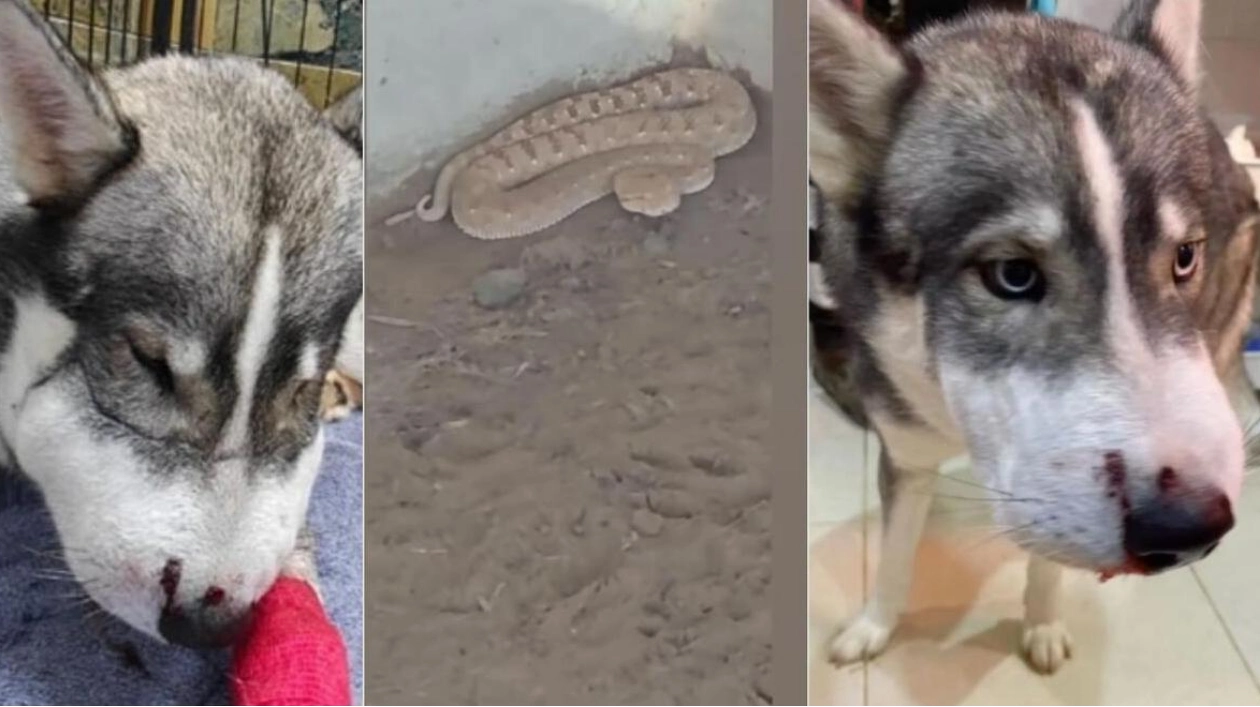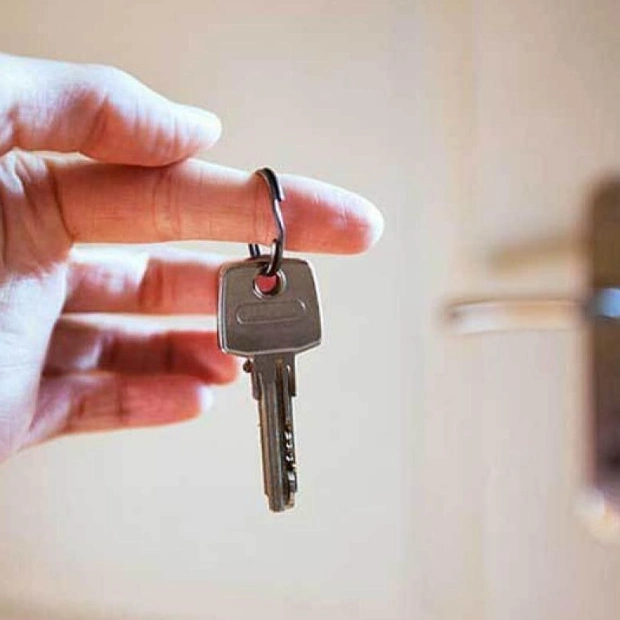Early Friday morning, the caretakers of Stray Dogs Centre in Umm Al Quwain heard a commotion in one section of the shelter. They quickly went to investigate and were shocked by what they found.
"Three of our huskies were bitten by a viper in our sanctuary area where dogs from the purebred unit roam freely every day," explained Amirah William, the founder of Stray Dogs Center. At the time, seven dogs were in that section. The three huskies - Betty, Wally, and Janny - received emergency treatment at the shelter and were transferred to the British Veterinary Hospital within 30 minutes of the incident.
Amirah expressed concern about the severity of the bites, stating, "All three were bitten on the face and were in critical condition. We will have to wait and see if the anti-venom, along with supportive treatment, has been effective."
Amirah provided details on how the viper entered the center, stating, "After the mid-April storm, we added a drain hole in the small sanctuary area. The snake managed to get through the drainage hole despite the entire shelter being enclosed by brick fencing."
An expert identified the snake in a photo and video as a mature female Arabian Horned Viper (Cerastes gasperettii). Waddah Moseley, a Zoological and Animal Welfare Specialist, explained, "From the video, it appears to be an adult female based on its size. Arabian Horned Vipers usually reach this size around 2-4 years old."
Dr. Gareth Enslin from the British Veterinary Hospital provided an update on the huskies' condition and mentioned that they had a stable night despite not eating. He indicated that their red blood cell (RBC) count had dropped, with Janny experiencing the most significant decrease from 35% to 24%. The hospital will continue their treatment with drips, pain management, and antibiotics, monitoring their RBC counts closely.
To aid in the huskies' recovery, the Stray Dogs Centre sought assistance and received anonymous help to source anti-venom. Amirah expressed gratitude, stating, "Upon receiving support, we secured sponsorship for their treatment after posting a plea on social media."
The viper was safely contained and later found to have slithered away, prompting the installation of a steel mesh cover over the drainage hole for added safety. Amirah emphasized the shelter's 'No kill' policy and their practice of relocating snakes back to their natural habitat.
Amid concerns about venomous snakes, Amirah encouraged coexistence, highlighting, "The desert is their natural habitat, and it's up to us to find ways to live harmoniously with the desert inhabitants."
Waddah reassured residents about minimal risk, advising, "While caution is natural, there is no need for undue fear. With proper awareness and respect for their habitat, encounters and harm from these vipers are minimal."
As temperatures rise, snakes become more active, increasing the possibility of sightings. Waddah urged caution and advised on protective measures to minimize encounters, emphasizing the rarity of snake bites in the UAE and the importance of seeking immediate medical attention in the event of a bite.
Waddah also underscored the role of education and awareness in safely coexisting with snakes, highlighting the presence of various viper species in the UAE.
The Stray Dogs Centre, home to 1,300 dogs, relies on public support and volunteer contributions to sustain its operations, emphasizing the significance of sponsorship and volunteer involvement in the shelter's activities.






